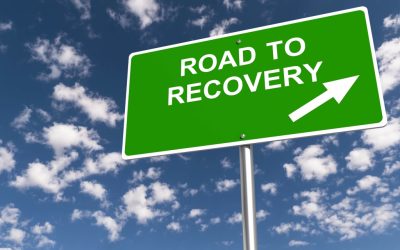Additionally, the liver spends a significant amount of time processing alcohol, which can delay the absorption of other nutrients, further contributing to nutrient deficiencies. Hypoglycemia, or low blood glucose, can occur when alcohol is consumed in conjunction with medications commonly used to treat diabetes, such as insulin and sulfonylureas. This is because the liver prioritizes metabolizing alcohol over maintaining blood glucose levels.
Remember, overcoming sugar cravings during recovery is a process that requires time, patience, and a multidimensional approach. By incorporating healthy alternatives and seeking professional help and support, you can develop effective coping strategies to manage sugar cravings and support your overall well-being. Understanding these behavioral patterns can help individuals in recovery recognize and address their sugar cravings. By identifying habitual behaviors and finding healthier alternatives for instant gratification, they can develop strategies to cope with these cravings in a more sustainable and beneficial way.

The importance of addressing social isolation in recovery
In fact, that’s part of the reason why the expert team at Silver Maple Recovery provides healthy meals for patients. It’s important to note that while sugar cravings may temporarily provide a sense of satisfaction, they do not address the underlying nutritional deficiencies. In fact, excessive consumption of sugar can further deplete certain nutrients and contribute to other health issues. Incorporating physical activity into the daily routine is also essential for maintaining physical health during alcohol recovery. Regular exercise can help improve mood, reduce stress, and support overall well-being. It is advisable to consult with healthcare professionals or nutritionists to develop personalized nutrition plans that meet individual needs and support the recovery journey.
Sugar Cravings During Recovery
- In the following sections, we will explore the factors influencing sugar cravings, the impacts of alcohol on sugar cravings, and strategies for managing sugar cravings in recovery.
- The brain and body are seeking a substitute for the sugar fix previously obtained from alcohol.
- There seems to be a genetic component underlying the sweet preference observed in alcohol- and drug-dependent individuals, as well as in children of alcoholic parents.
- Understanding these factors is essential as it can provide valuable insights for individuals in recovery from alcohol addiction, and aid in the development of effective treatment strategies.
Two key factors influenced by alcohol consumption are blood sugar levels and changes in taste receptors and gut bacteria. It stimulates dopamine-releasing neurons, particularly in the nucleus accumbens (NAc), leading to pleasurable effects and reinforcing the desire for continued consumption. This increased dopamine release due to alcohol can result in heightened cravings for other rewarding substances, such as sugar.
How to strengthen resilience and adaptability in recovery
Moreover, alcohol can interfere with the brain’s reward pathway, causing changes in behavior and reinforcing cravings for rewarding substances like sugar. By opting for healthier alternatives and adopting a balanced lifestyle, individuals can tackle their cravings effectively and maintain their sobriety. However, it’s important to remember that recovery is a journey and it’s okay to seek help and support when needed. In understanding the link between alcohol and sugar cravings, one gains insights into the broader complexity of addiction. These insights may help individuals grappling with alcohol do alcoholics crave sugar addiction to understand and manage their sugar cravings as part of their journey towards recovery.
When individuals stop consuming alcohol, they may subconsciously seek out sugar as a way to compensate for the calories previously obtained from alcohol. This can lead to cravings for sugary foods and beverages, as the body seeks alternative sources of energy 1. Overcoming the intricate relationship between alcoholism and sugar cravings can be a challenging journey.
Striking a balance in sugar consumption is crucial to avoid such issues and maintain overall well-being. The impact of sugar on the brain, particularly in individuals with alcohol use disorder, highlights the complex nature of addiction and the potential for sugar cravings to replace alcohol cravings. By understanding the underlying mechanisms at play, individuals in recovery can make informed decisions and develop strategies to manage their sugar cravings effectively. Understanding and managing sugar cravings is vital for those overcoming alcohol addiction.
This section will explore the sweet preference often observed in alcohol-dependent individuals and the neurobiological pathways that contribute to sugar addiction. Recovery from alcohol addiction can be a highly stressful process, and stress is another factor that can lead to sugar cravings. Alcohol affects the body’s stress response by dampening it, which can make stressful situations feel more manageable. When alcohol is Sobriety removed, stress levels can rise, and the body may crave sugar as a way to counteract this stress. High-calorie, high-sugar, low-nutrient foods are frequently consumed in early recovery. This pattern can result in weight gain, low mood, and potential triggers for alcohol relapse.
Try drinking a glass of water first whenever a craving strikes and you may find it fades within a few minutes. Keeping hydration a daily habit supports digestion, energy, and overall well-being, all of which are very important when healing from alcohol dependency. If you experience withdrawal symptoms, like anxiety, agitation, sweating, or hallucinations, it’s best to talk to a healthcare provider, according to the American Addiction Centers.

If we accept that low glucose levels induce cravings, this spells potential disaster when using sugar as a substitute. Some propose that this simply correlates to the activation of the brain’s reward centers. Over time, chronic alcohol consumption can disrupt the delicate balance of dopamine in the brain. The brain adapts to the increased levels of dopamine by reducing the number of dopamine receptors, which can contribute to a decreased sensitivity to pleasurable stimuli. Alcoholism, also known as alcohol use disorder (AUD), is a chronic condition characterized by an inability to control or stop drinking despite negative consequences. It is a complex disease that can have severe physical, psychological, and social effects on individuals.
